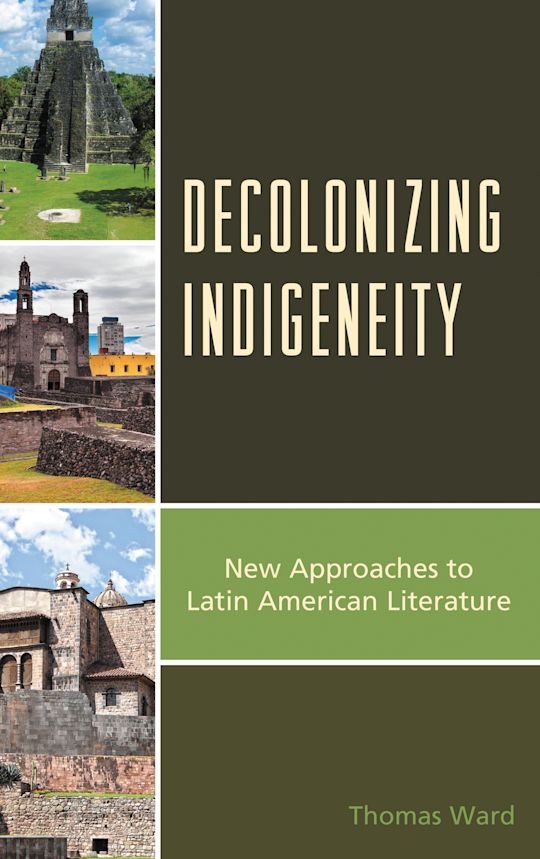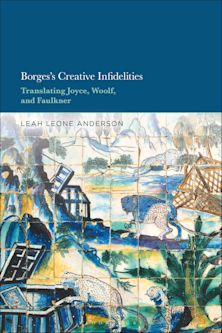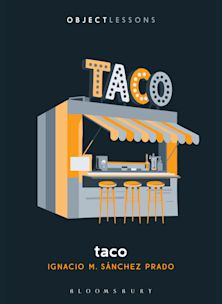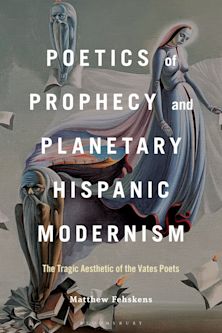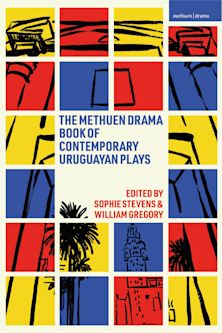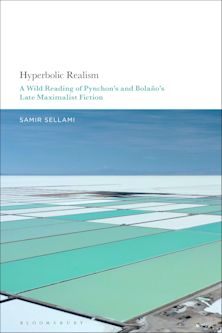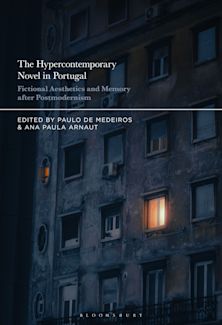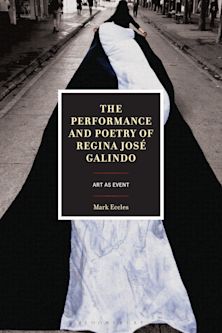- Home
- ACADEMIC
- Literary Studies
- Central and South American Literature
- Decolonizing Indigeneity
Decolonizing Indigeneity
New Approaches to Latin American Literature
Decolonizing Indigeneity
New Approaches to Latin American Literature
You must sign in to add this item to your wishlist. Please sign in or create an account
Description
While there are differences between cultures in different places and times, colonial representations of indigenous peoples generally suggest they are not capable of literature nor are they worthy of being represented as nations. Colonial representations of indigenous people continue on into the independence era and can still be detected in our time. The thesis of this book is that there are various ways to decolonize the representation of Amerindian peoples. Each chapter has its own decolonial thesis which it then resolves. Chapter 1 proves that there is coloniality in contemporary scholarship and argues that word choices can be improved to decolonize the way we describe the first Americans. Chapter 2 argues that literature in Latin American begins before 1492 and shows the long arc of Mayan expression, taking the Popol Wuj as a case study. Chapter 3 demonstrates how colonialist discourse is reinforced by a dualist rhetorical ploy of ignorance and arrogance in a Renaissance historical chronicle, Agustin de Zárate's Historia del descubrimiento y conquista del Perú. Chapter 4 shows how by inverting the Renaissance dualist configuration of civilization and barbarian, the Nahua (Aztecs) who were formerly considered barbarian can be "civilized" within Spanish norms. This is done by modeling the categories of civilization discussed at length by the Friar Bartolomé de las Casas as a template that can serve to evaluate Nahua civil society as encapsulated by the historiography of Fernando de Alva Ixtlilxochitl, a possibility that would have been available to Spaniards during that time. Chapter 5 maintains that the colonialities of the pre-Independence era survive, but that Criollo-indigenous dialogue is capable of excavating their roots to extirpate them. By comparing the discussions of the hacienda system by the Peruvian essayist Manuel González Prada and by the Mayan-Quiché eye-witness to history Rigoberta Menchú, this books shows that there is common ground between their viewpoints despite the different genres in which their work appears and despite the different countries and the eight decades that separated them, suggesting a universality to the problem of the hacienda which can be dissected. This book models five different decolonizing methods to extricate from the continuities of coloniality both indigenous writing and the representation of indigenous peoples by learned elites.
Table of Contents
Chapter 1: Colonial Force: Word Choices, the Denial of Nationness, and the Coloniality of Mind
Chapter 2: The Popol Wuj and the Birth of Mayan Literature
Chapter 3: Coloniality of mind in Zárate's Historia del descubrimiento y conquista del Perú
Chapter 4: Alva Ixtlilxochitl, Civilization, and the Quest for Coevalness
Chapter 5: González Prada and Menchú: Indigenism and Indigenous Expression
Final Thoughts: Overcoming Coloniality in Literature and History
Product details
| Published | Dec 20 2016 |
|---|---|
| Format | Ebook (Epub & Mobi) |
| Edition | 1st |
| Extent | 288 |
| ISBN | 9781498535199 |
| Imprint | Lexington Books |
| Illustrations | 2 b/w illustrations; 1 b/w photos; 1 tables; |
| Series | Critical Approaches to Latin American Literature and Culture |
| Publisher | Bloomsbury Publishing |
About the contributors
Reviews
-
Thomas Ward’s Decolonizing Indigeneity makes a valuable contribution to Latin American Studies by advocating for the need to center indigenous and mestizo perspectives.
Revista de Estudios Hispánicos
-
Written in the best tradition of the essay, Decolonizing Indigeneity is an informed, engaging analysis of a necessary subject that encompasses five centuries of the complex and diverse cultural histories in Latin America.
Juan J. Daneri, East Carolina University
-
In Decolonizing Indigeneity: New Approaches to Latin American Literature, Thomas Ward, working with deep erudition and sharp analysis, questions the paradigm we have inherited for the teaching of Latin American literature. He argues that both the canon and methods in use privilege a Eurocentric approach that not only leaves out the indigenous past and present civilizations of Mexico, Peru and Guatemala but foments the massive erasing and forgetting starting with and by the Conquest. In trenchant chapters that push to the fore Indigenous thought past and present, Ward restores indispensable representations of Indigenous cultures and inverts the standing paradigm. He outlines a new intellectual organization that pulls the rug from under the hegemonic organization of knowledge of Spanish departments as well as departments of Modern Languages. Required reading for all scholars interested in deep historical cultural formations and curricular reorganization, globalization and the future of knowledge relative to the world’s demographies.
Sara Castro-Klaren, Johns Hopkins University
-
In Decolonizing Indigeneity, Thomas Ward both engages with and puts into practice a compelling
decolonial methodology regarding colonial and contemporary writings by and about Amerindians.
Understood in terms of the colonists’ historiography, religion, and science, portrayals
of indigeneity are in great need of correction. Ward’s book decolonizes such depictions of
indigeneity by viewing Mayan and Andean peoples in their own terms, identifying colonizing
mechanisms, and countering present-day readers’ colonized classification of knowledge that
conditions their critical analysis of texts.
Chapter 1 outlines three varieties of the colonial force (outright colonialism, intracolonialism,
and neo-colonialism), which provides the theoretical backbone of the book. These
varieties can also be understood as the successive stages of colonization in Latin America: the
Spanish invasion, domination and exploitation; the internalization of colonizing mechanisms by
original colonists’ descendants; and the current economic dependency on the United States and
other world powers. Ward contends that the enduring effects of colonialism can be approached
through an analysis of the coloniality of the mind. Intra-colonialists, neo-colonialists, and the
colonized reveal their coloniality of mind by (un)consciously repeating outright colonialists’
cultural paradigms. These cultural paradigms can be observed in the ways Amerindians were
and are still denied nationness and coevalness. Spanish chroniclers not only referred to diverse
Amerindian ethnic communities with the nationnes-negating term “Indian” but also assigned
them a time different than their own.
In chapter 2, Ward’s decolonial analysis of the Popol Wuj both foregrounds its Mayan epistemology
related to space and time and recounts its sociopolitical and literary meanings in many
post-Independence settings. Popol Wuj views society as temporally unified and uses a numerical
base and a geometric conceptualization of space. Its worldview has a binary formulation.
For instance, dualities organize people into moieties, and the pairs of moieties turn into quadriccentric
forms of social organization. Also, in the late twentieth century Popol Wuj served as the
foundation of a sociopolitical movement by Guatemalan Mayans who embraced it in their claim
for a political space and rights to live according to their native culture in Guatemala.
Chapter 3 focuses on the mind-set of Agustín de Zárate, author of Historia del descubrimiento
y conquista del Perú (1555). Ward contends that Zárate’s psychological coloniality—
grounded in a specific philosophy of his time—blocked out indigenous information and shaped
a conceptual vindication of the Spanish empire. Zárate manipulated information mainly by
analogy. For instance, the chronicler interpreted and explained the origin and culture of the
Inkas by comparing the Tawantinsuyo with the Atlantis from Plato’s Critias. Zárate could not
view the Andeans as his contemporaries; he pushed them back in time and considered them
primitive people. Ward states that not only Zárate but other letrados dismissed the notion of
Andean non-alphabetic historiography, such as the khipu. However, the critic’s affirmation is
not completely accurate because by the mid-1550s Andean leaders were allowed to use khipus
as evidence in their claims before Spanish judges. As Kathryn Burns and Carmen Loza have
pointed out, Andean leaders, aided by lettered Andeans, became adept at the use of legal petitions
to defend their communities’ resources.
In chapter 4, Ward both foregrounds the civilization status of the Acolhua-Chichimeca
nation as portrayed by Fernando de Alva Ixtlilxochitl and regards the defense of his people as
colonial Indigenism. Ward’s method uses Bartolomé de las Casas’s inversion of the Sepulvedan
paradigm of justifications to wage war against barbarians. Las Casas’s six traits indicative of civil
life are prudence, virtuousness, learnedness, nobleness, respect for the law, and spirituality. These
traits constitute a model for evaluating society in Historia de la nación chichimeca (ca. 1625).
Alva’s decoloniality resides indeed in the depiction of pre- and post-contact Nahua peoples as
societies who highly valued the same attributes of civilization that the Spaniards did. One civil
trait analyzed in an enlightening way is spirituality, which Ward breaks down into cosmogony,
sedentary religiosity, and monotheism. Like the Popol Wuj, Historia coincides with standard
Mesoamerican abstractions in which the number four configures space and time. However,
unlike the Popol Wuj, Historia ignores a multitude of the elements typical of Mesoamerican
cosmogonic formation and creates a confusing mix of entities and periods (123). Alva’s Indigenist
and pro-Catholic depiction of his Chichimeca civilization reveals his mestizo identity.
Chapter 5 compares Manuel González Prada’s Indigenist essay “Nuestros indios” (1904) with
Rigoberta Menchú Tum’s Indigenous expressional testimony “Me llamo Rigoberta Menchú y así
me nació la conciencia” (1985). Both texts share a main concern regarding the subordinating
mechanisms of the hacienda in their respective Andean and Mayan communities. Ward delineates
the four thematic issues related to the coloniality of the hacienda criticized in both texts:
(i.) the ethnic subordination of people by means of the role of the caporal, (ii.) the damaging
effects of alcohol, (iii.) the status of the Spanish language in the education system, and (iv.) the
continuation of acts of violence against the descendants of Amerindian peoples and their reaction
to such acts. In addition to a careful evaluation of each Indigenist writer’s insightful depictions of
and prescribed antidotes to the hacienda system, there is a suggestive critique of González Prada’s
stance on indigenous education. Ward decolonizes the Peruvian essayist’s idealized conception
of modernity as an end to be reached by a Western-style—although non-Catholic—system of
education. Ward finds his posture a “culturally insensitive pedagogical position” (160). Unlike
González Prada, Menchú Tum was not interested in modernity. She believed in a type of education
that would not only be conducted in Amerindian languages but also have as its main goal
the preservation of traditions.
Decolonizing Indigeneity derives from, and further develops, the decolonial methodologies
carried out especially by Aníbal Quijano and Walter Mignolo. Its adaptation of Quijano’s
theory of “coloniality of power” and its application of Mignolo’s concept of “coevalness” in the
analysis of foundational texts provide an enlightening contribution to decolonial and postcolonial
studies. Indeed, it allows us to resist the colonial force that has distorted our understanding and
appreciation of Amerindian civilizations in all their complexity since the colonial period. This
book is a required reading for students and scholars of Latin American literature.
Hispania, Volume 101, Number 3, September 2018, pp. 466-468 (Review)Alexander M. Cárdenas, University of Colorado, Boulder

ONLINE RESOURCES
Bloomsbury Collections
This book is available on Bloomsbury Collections where your library has access.








